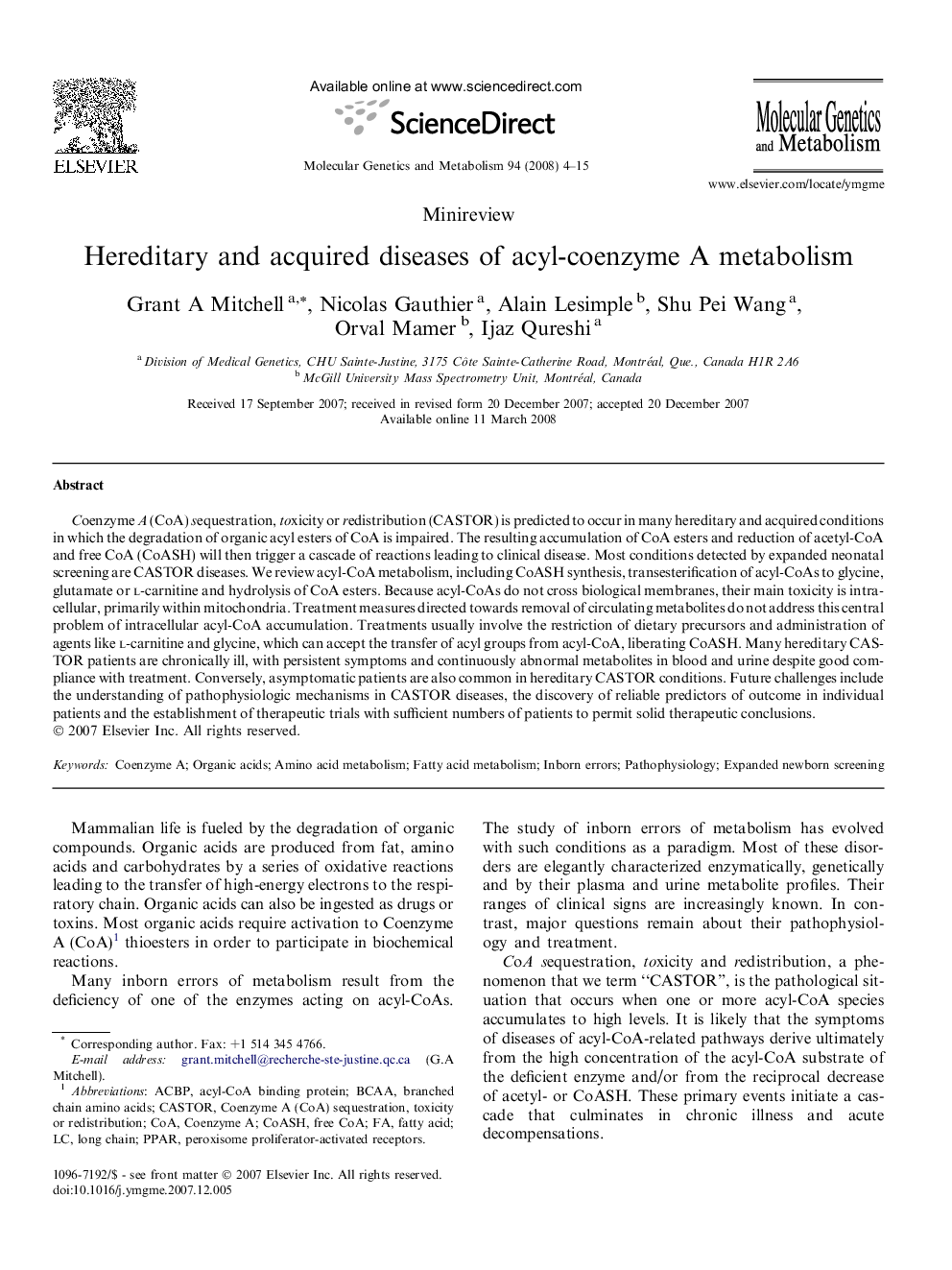| Article ID | Journal | Published Year | Pages | File Type |
|---|---|---|---|---|
| 2000043 | Molecular Genetics and Metabolism | 2008 | 12 Pages |
Coenzyme A (CoA) sequestration, toxicity or redistribution (CASTOR) is predicted to occur in many hereditary and acquired conditions in which the degradation of organic acyl esters of CoA is impaired. The resulting accumulation of CoA esters and reduction of acetyl-CoA and free CoA (CoASH) will then trigger a cascade of reactions leading to clinical disease. Most conditions detected by expanded neonatal screening are CASTOR diseases. We review acyl-CoA metabolism, including CoASH synthesis, transesterification of acyl-CoAs to glycine, glutamate or l-carnitine and hydrolysis of CoA esters. Because acyl-CoAs do not cross biological membranes, their main toxicity is intracellular, primarily within mitochondria. Treatment measures directed towards removal of circulating metabolites do not address this central problem of intracellular acyl-CoA accumulation. Treatments usually involve the restriction of dietary precursors and administration of agents like l-carnitine and glycine, which can accept the transfer of acyl groups from acyl-CoA, liberating CoASH. Many hereditary CASTOR patients are chronically ill, with persistent symptoms and continuously abnormal metabolites in blood and urine despite good compliance with treatment. Conversely, asymptomatic patients are also common in hereditary CASTOR conditions. Future challenges include the understanding of pathophysiologic mechanisms in CASTOR diseases, the discovery of reliable predictors of outcome in individual patients and the establishment of therapeutic trials with sufficient numbers of patients to permit solid therapeutic conclusions.
